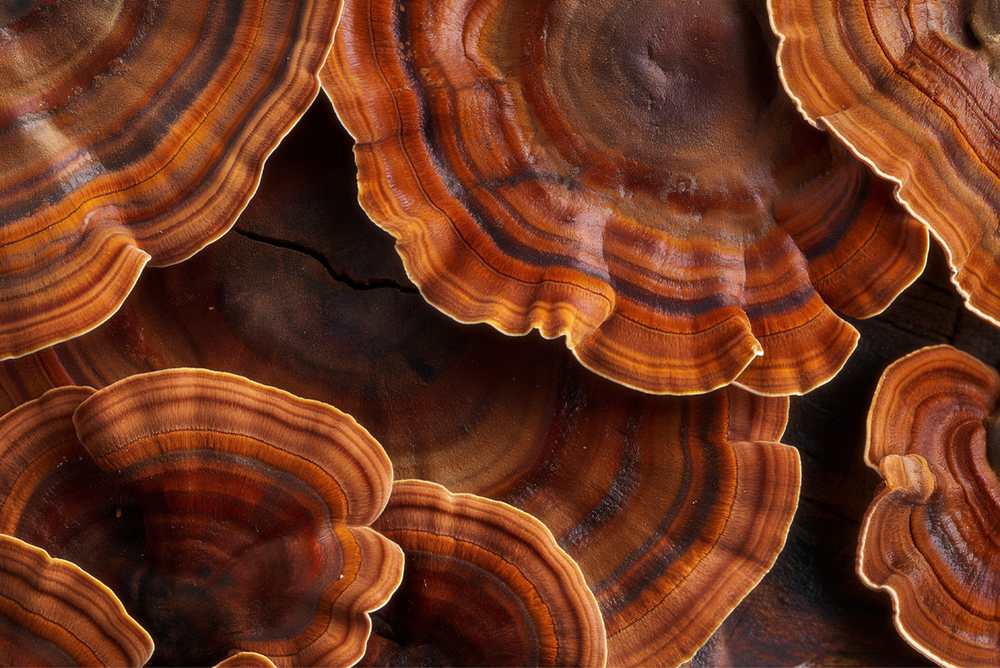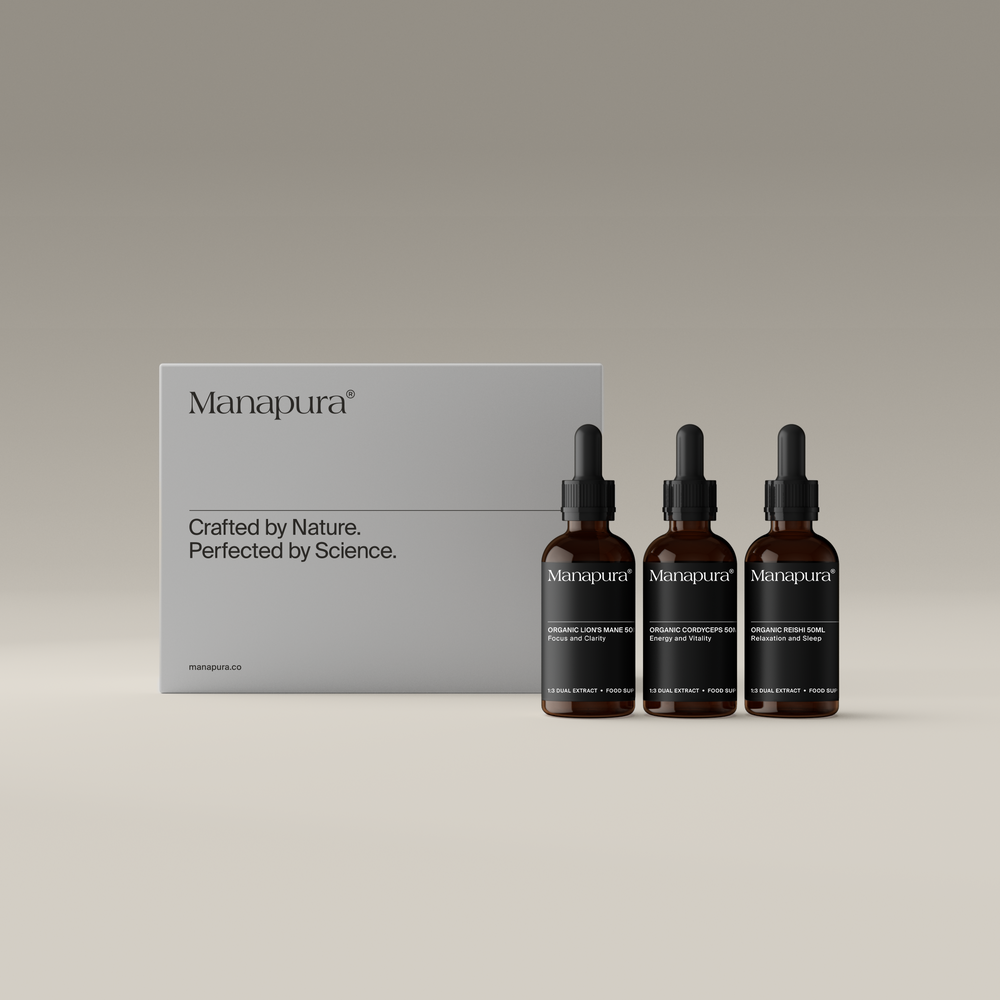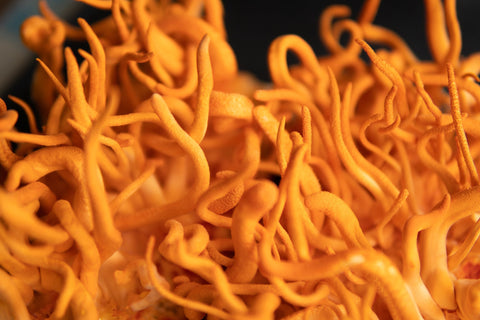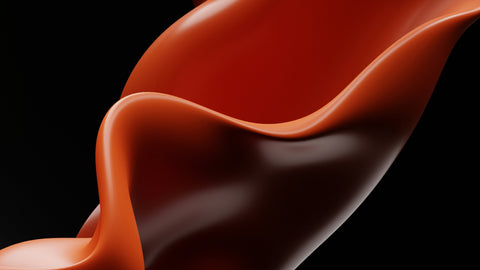Can Reishi Help You Sleep Better? What the Research Actually Says
13.10.2025
In the search for better rest, many people are moving away from pharmaceutical sleep aids and toward natural approaches that work with, not against, the body’s rhythms. One of the most respected candidates is Reishi (Ganoderma lucidum), a functional mushroom long used in Traditional Chinese Medicine for its calming and restorative qualities. Reishi has recently captured attention in the wellness space for its potential to support relaxation, resilience, and sleep quality. But what does modern science actually show? Let’s explore the research and understand how Reishi may help your body unwind naturally.

Reishi, on the other hand, supports the systems that control sleep and stress rather than artificially inducing sleepiness. This makes it a more holistic and sustainable tool for long-term regulation.
What Is Reishi?
Reishi is a wood-loving fungus that has been used for thousands of years in Eastern medicine. Its bioactive compounds, including triterpenes, polysaccharides, and beta-glucans, interact with key systems in the body such as the immune, endocrine, and nervous systems.
Rather than acting as a sedative, Reishi helps the body restore balance after stress, making it an excellent choice for those whose sleep struggles stem from a busy mind, chronic tension, or fatigue.
This mushroom’s broad spectrum of activity helps promote resilience and equilibrium, two crucial elements for both physical recovery and emotional stability. No wonder Reishi is often called the “mushroom of immortality.”
How does Reishi Help with Sleep?
Scientists believe Reishi’s benefits for rest and recovery arise from several interrelated mechanisms.
-
MODULATION OF THE STRESS RESPONSE
Reishi appears to help regulate the body’s main stress axis, the hypothalamic-pituitary-adrenal (HPA) axis, which governs cortisol production. Research suggests that its triterpenes and beta-glucans may help lower excessive cortisol and support a calmer physiological state, making it easier to unwind at night.
-
INFLUENCE ON NEUROTRANSMITTERS
Animal studies indicate that compounds in Reishi can affect serotonin pathways involved in sleep and mood regulation. For instance, Cui et al. (2012) found that Ganoderma lucidum extract increased non-REM and total sleep time in animals, while Yao et al. (2021) demonstrated that Reishi promotes sleep through a gut-microbiota-dependent and serotonin-linked mechanism.
-
ANTI-INFLAMMATORY AND ANTIOXIDANT ACTIVITY
Inflammation and oxidative stress can interfere with the body’s ability to achieve restorative sleep. Reishi’s anti-inflammatory and antioxidant properties help reduce this internal “noise,” supporting more consistent and higher-quality rest.

A Natural Sleep Remedy
Unlike conventional sleep aids that force sedation, Reishi works by helping the body recalibrate its stress and arousal systems. It doesn’t knock you out; it restores the conditions that make natural sleep possible.
This makes Reishi ideal for those looking to address the root causes of poor rest, such as stress, overactivation of the nervous system, or post-burnout fatigue.
Regular supplementation has been linked to improved energy, emotional stability, and a greater sense of calm. For athletes and high performers, Reishi’s ability to support immune recovery and promote deeper sleep can translate to faster physical regeneration and better mental clarity. This makes it a smart addition to post-workout routines or evening wind-down stacks, especially for those who find it hard to switch off after intense activity.
Melatonin, Magnesium, and Reishi
When it comes to sleep-related supplements, melatonin and magnesium are often the first to come up. But it’s important to understand their roles clearly.
Melatonin isn’t technically a sleep aid; it’s a hormone that signals darkness and prepares the body for rest. Supplementing it daily isn’t generally necessary and should be reserved for specific cases like jet lag, shift work, or short-term circadian disruption. Overuse can desensitize receptors or confuse natural rhythms.
Reishi, on the other hand, supports the systems that control sleep and stress rather than artificially inducing sleepiness. This makes it a more holistic and sustainable tool for long-term regulation.
Magnesium, glycine, and L-theanine can complement Reishi beautifully by relaxing muscles and supporting neurotransmitter balance. Together, these nutrients help restore the natural architecture of sleep rather than bypassing it.
What the Studies Say
Animal and human data both point toward Reishi’s restorative potential.
-
Chu et al. (2007) observed that Ganoderma lucidum extract increased sleep duration and reduced locomotor activity, suggesting improved rest quality.
-
Li et al. (2024) reported that over half of cancer patients in a large survey noticed improvements in fatigue, appetite, and general well-being after using Reishi.
- In a pilot double-blind, randomized, placebo-controlled trial, Gracián-Alcaide et al. (2020) found that combining Reishi with elderberry extracts led to fewer sleep problems and lower insomnia severity scores compared to placebo.
Together, these findings indicate that Reishi may not directly “induce” sleep but rather remove barriers that prevent it.

How to Use Reishi for Better Sleep
Most people take Reishi as a tincture or capsule around 30–60 minutes before bed. For best results, look for dual extracts made from the fruiting body of organically grown mushrooms, as these contain the full spectrum of active compounds.
That said, timing can be individual. Reishi doesn’t act like a sedative; it supports the body’s stress regulation, so the ideal time to take it can vary from person to person and even day to day. For example, if you’re trying to reset your sleep rhythm or calm your mind in the evening, taking it before bed may help.
But if your sleep is already stable, you might prefer taking it in the morning to support cortisol balance and daytime calm without affecting nighttime rest. It often takes a little experimentation to find what works best for your body. Consistency matters more than timing, as Reishi’s benefits tend to build with regular use.
Avoid low-quality, imported powders or grain-grown mycelium products that often contain filler and lack potency. For enhanced effects, combine Reishi with gentle evening rituals such as stretching, meditation, or blue-light blocking to help the nervous system transition into rest.
Final Thoughts
Reishi is not a quick fix or a magic bullet for insomnia, but it’s one of the most promising natural allies for restoring balance to the body and mind. By lowering cortisol, easing inflammation, and supporting the nervous system, Reishi helps create the inner conditions that make deep, restorative sleep possible.
Manapura’s Reishi Dual Extract uses only organic UK-grown fruiting bodies, with no fillers, no mycelium, and no compromises. The careful extraction process preserves both water-soluble beta-glucans and alcohol-soluble triterpenes, ensuring potency and purity.
Reishi isn’t just a supplement; it’s a daily ritual. A gentle reminder to unplug, exhale, and let your body return to its natural rhythm. For anyone navigating the fast pace of modern life, it offers a grounded path back to calm and truly restorative sleep.




